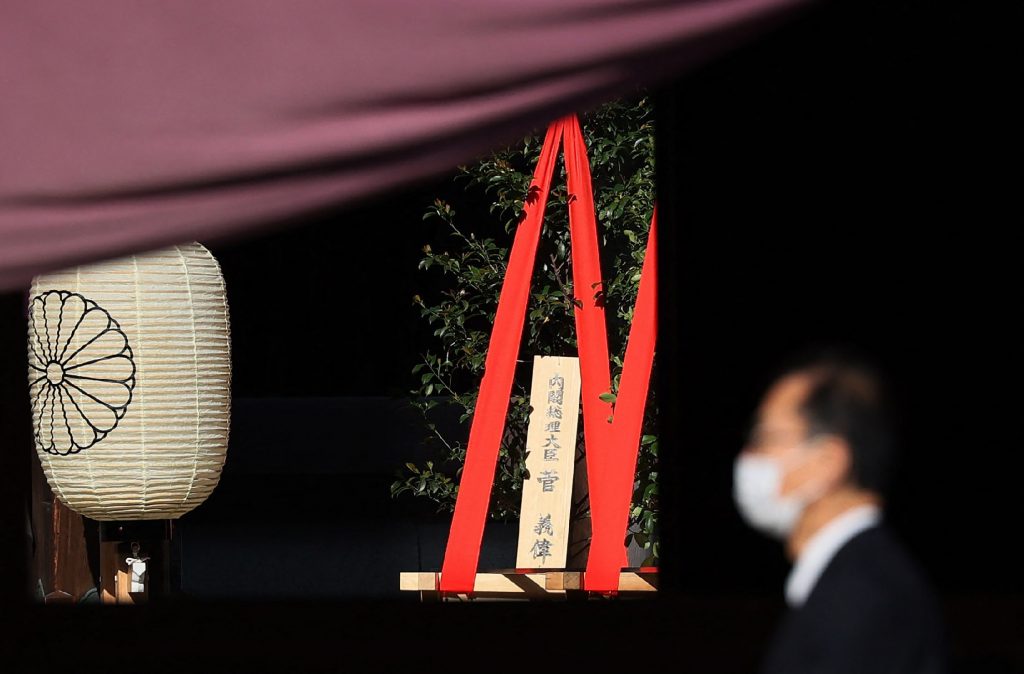
- ARAB NEWS
- 15 Jul 2025

TOKYO: Japanese Prime Minister Yoshihide Suga on Wednesday donated religions offerings to a Tokyo shrine viewed by China and both Koreas as a symbol of wartime aggression, though he avoided a visit.
Suga’s offering of “masakaki” leaves at Yasukuni Shrine was his second since taking office in September and marks the shrine’s biannual festival honoring Japan’s war dead.
Victims of Japanese military aggression in most of the first half of the 20th century, especially the Koreas and China, see the shrine as a symbol of Japan’s militarism because it honors convicted World War II criminals among about 2.5 million war dead.
Chief Cabinet Secretary Katsunobu Kato told reporters that Suga’s offering at the shrine was considered “an activity as a private person” and the government was not in a position to comment about it.
NHK public television reported two members of Suga’s Cabinet visited the shrine, Health Minister Norihisa Tamura and Shinji Inoue, minister in charge of the 2025 world expo.
Suga’s predecessor, Shinzo Abe, who is known for his revisionist stance on Japan’s wartime atrocities, visited the shrine Wednesday. “I payed for the venerable spirits of those who sacrificed their precious lives to fight for (our) country,” Abe told reporters afterward.
Abe stayed away from the shrine for seven years after his 2013 visit triggered outrage from China and the Koreas, but he has regularly visited since he resigned as prime minister last year.
Many South Koreans hold strong resentment against Japan for its 1910-45 colonial rule of the Korean Peninsula. Relations between Seoul and Tokyo have sunk to their lowest levels in recent years over history and disputes over compensation for Korean wartime forced labor and systematic sexual abuse of “comfort women” by the Japanese military.
AP News